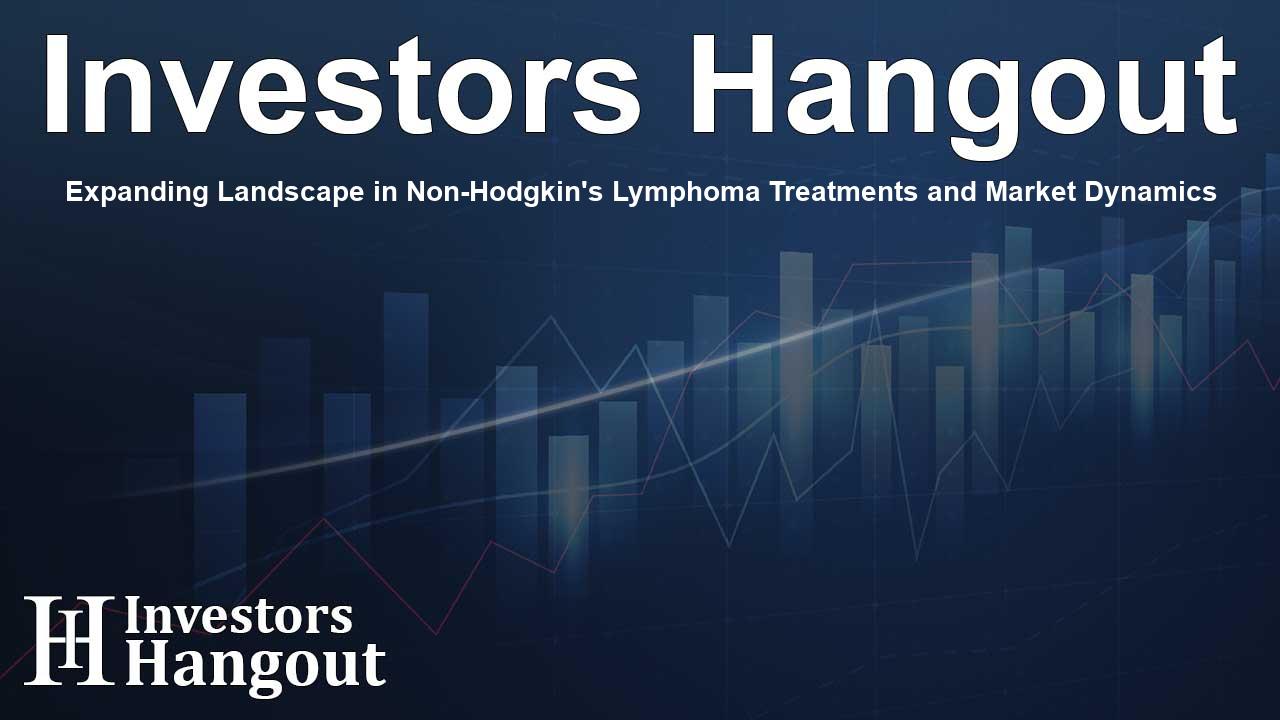Expanding Landscape in Non-Hodgkin's Lymphoma Treatments and Market Dynamics

Growth in the Non-Hodgkin's Lymphoma Market
Non-Hodgkin's lymphoma (NHL) is witnessing a remarkable transformation, driven by advancements in research and treatment methodologies. This diverse group of blood cancers originates in the lymphatic system and primarily impacts lymphocytes, which are crucial for the immune response. Current studies show an optimistic market forecast, buoyed by the rising incidence of this condition, enhanced awareness of early detection, and significant strides in targeted therapies.
Emergence of Innovative Treatments
The evolution of therapeutic options for NHL includes the pioneering development of targeted therapies, such as CAR-T cell treatments, that address the disease more effectively than traditional methods. These include new players entering the market with innovative treatments aimed at improving patient outcomes. The ongoing research is not just limited to existing therapies; numerous emerging drugs are in the clinical pipeline, ready to potentially reshape the treatment landscape. Companies like Soligenix, Nurix Therapeutics, and AstraZeneca are at the forefront, engaging in cutting-edge research to bring forth novel solutions to combat this disease.
Understanding Non-Hodgkin's Lymphoma
Non-Hodgkin's lymphoma comprises various subtypes, making it a complex and multifactorial disease. Risk factors include genetic predisposition, immune system deficiencies, and environmental exposures. The symptoms can be diverse, typically manifesting as painless lymph node swelling, systemic symptoms like fever, night sweats, unexplained weight loss, and fatigue. Patients might also experience abdominal discomfort and respiratory issues when the chest or abdomen is involved.
Diagnosis and Epidemiological Trends
Accurate diagnosis relies on clinical evaluation and an array of tests, including biopsies and imaging studies. This process is vital for determining the specific lymphoma subtype and guiding treatment approaches. As a result, awareness of NHL and its symptoms fosters early detection, which is critical for effective management.
Market Dynamics and Competitive Landscape
The NHL treatment market is positioned for growth, with several established and emerging therapies set to dominate. Current treatments, such as R-CHOP combination therapy and monoclonal antibodies, provide foundational care options. However, the introduction of innovative therapies is shifting the focus toward more personalized treatment regimens, optimizing patient care by tailoring therapies based on genetic and molecular profiles.
Significant players in the NHL market, including Genentech, Merck, and AbbVie, have developed key therapies that are currently in use, setting benchmarks for efficacy and safety. Additionally, industry collaborations and innovations are expected to introduce therapies that may significantly reduce production challenges associated with CAR-T therapies, thus potentially making them more accessible.
Epidemiology and Upcoming Innovations
Detailed epidemiological data sheds light on the increasing number of diagnosed cases of NHL across various demographics. The growth in the patient pool indicates a pressing need for effective treatment options. Innovations, including novel biological therapies, are anticipated to enter the market, facilitating better management of the disease and improving long-term outcomes for patients.
Future Directions and Regulatory Approvals
Looking ahead, the successful navigation of regulatory pathways will play a crucial role in how swiftly innovative therapies can reach patients. Companies are expected to document robust clinical trial results as they seek FDA approvals, which will further shape the treatment landscape for NHL. The transition towards transformative therapies underscores the importance of continued research and investment in this area.
Frequently Asked Questions
What is Non-Hodgkin's lymphoma?
Non-Hodgkin's lymphoma is a group of blood cancers originating in the lymphatic system, primarily affecting lymphocytes.
What are the common symptoms of Non-Hodgkin's lymphoma?
Typical symptoms include painless swelling of lymph nodes, fever, night sweats, unexplained weight loss, and fatigue.
How is Non-Hodgkin's lymphoma diagnosed?
Diagnosis involves clinical evaluations, biopsies, blood tests, and imaging studies to confirm the presence of lymphoma cells.
What therapies are currently available for Non-Hodgkin's lymphoma?
The main therapies include traditional chemotherapy, radiotherapy, targeted therapies, and immunotherapies, including CAR-T cell therapies.
What advancements are expected in the treatment of Non-Hodgkin's lymphoma?
Advancements in personalized medicine, targeted therapies, and new drug approvals are anticipated to enhance treatment efficacy and patient care.
About The Author
Contact Riley Hayes privately here. Or send an email with ATTN: Riley Hayes as the subject to contact@investorshangout.com.
About Investors Hangout
Investors Hangout is a leading online stock forum for financial discussion and learning, offering a wide range of free tools and resources. It draws in traders of all levels, who exchange market knowledge, investigate trading tactics, and keep an eye on industry developments in real time. Featuring financial articles, stock message boards, quotes, charts, company profiles, and live news updates. Through cooperative learning and a wealth of informational resources, it helps users from novices creating their first portfolios to experts honing their techniques. Join Investors Hangout today: https://investorshangout.com/
The content of this article is based on factual, publicly available information and does not represent legal, financial, or investment advice. Investors Hangout does not offer financial advice, and the author is not a licensed financial advisor. Consult a qualified advisor before making any financial or investment decisions based on this article. This article should not be considered advice to purchase, sell, or hold any securities or other investments. If any of the material provided here is inaccurate, please contact us for corrections.
